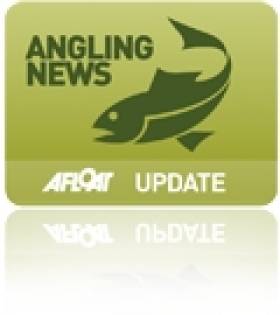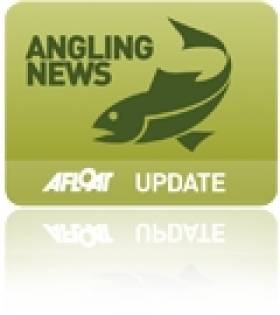Displaying items by tag: Department of Culture, Arts and Leisure
NI Taxpayers Could Foot the Bill for Fines Over Dwindling Salmon Stocks
#ANGLING - Northern Ireland's taxpayers could be left with a bill for millions in EU fines if action isn't taken to reverse the decline of salmon stocks, the News Letter reports.
Ulster Unionist MLA Robin Swann said he believes that voluntary measures to help protect the North's Altantic salmon will not remove the threat of "fines which would likely run into millions which [the people of NI] will end up paying".
As previously reported on Afloat.ie, NI's Fisheries Minister Carál Ní Chuilín called on offshore anglers and commercial fishermen to forego applying for 2012 salmon licences.
Annual monitoring of the North's salmon rivers has shown a failure to reach targets most years since 2002, with the survival rate of salmon in the marine phases in some cases dropping to as little as 5%.
Coastal drift nets and bag nets off the north Antrim coast - which contravene EU directives - have been blamed for intercepting salmon stocks before they reach the rivers, and anglers and conservation groups have already called for a ban.
But Swann says that Department of Culture, Arts and Leisure (DCAL) does not yet have the legislative power to stop them.
The News Letter has more on the story HERE.
NI Calls for Voluntary Ban on Offshore Salmon Fishing
#ANGLING - Northern Ireland's Department of Culture, Arts and Leisure (DCAL) has called on anglers to help protect the North's wild salmon, following new research that shows a significant drop in their numbers.
Fisheries Minister Carál Ní Chuilín told BBC News: "The continued commercial exploitation of wild Atlantic salmon and killing of salmon caught by rod and line in the DCAL jurisdiction is currently untenable."
Annual monitoring of Northern Ireland's salmon rivers has shown a failure to reach targets most years since 2002. The survival rate of salmon in the marine phases has in some cases dropped to as little as 5%.
DCAL has now urged offshore salmon anglers and fishermen to forego applying for 2012 licences, to give time to consider options for the future of salmon fishing.
BBC News has more on the story HERE.

























































